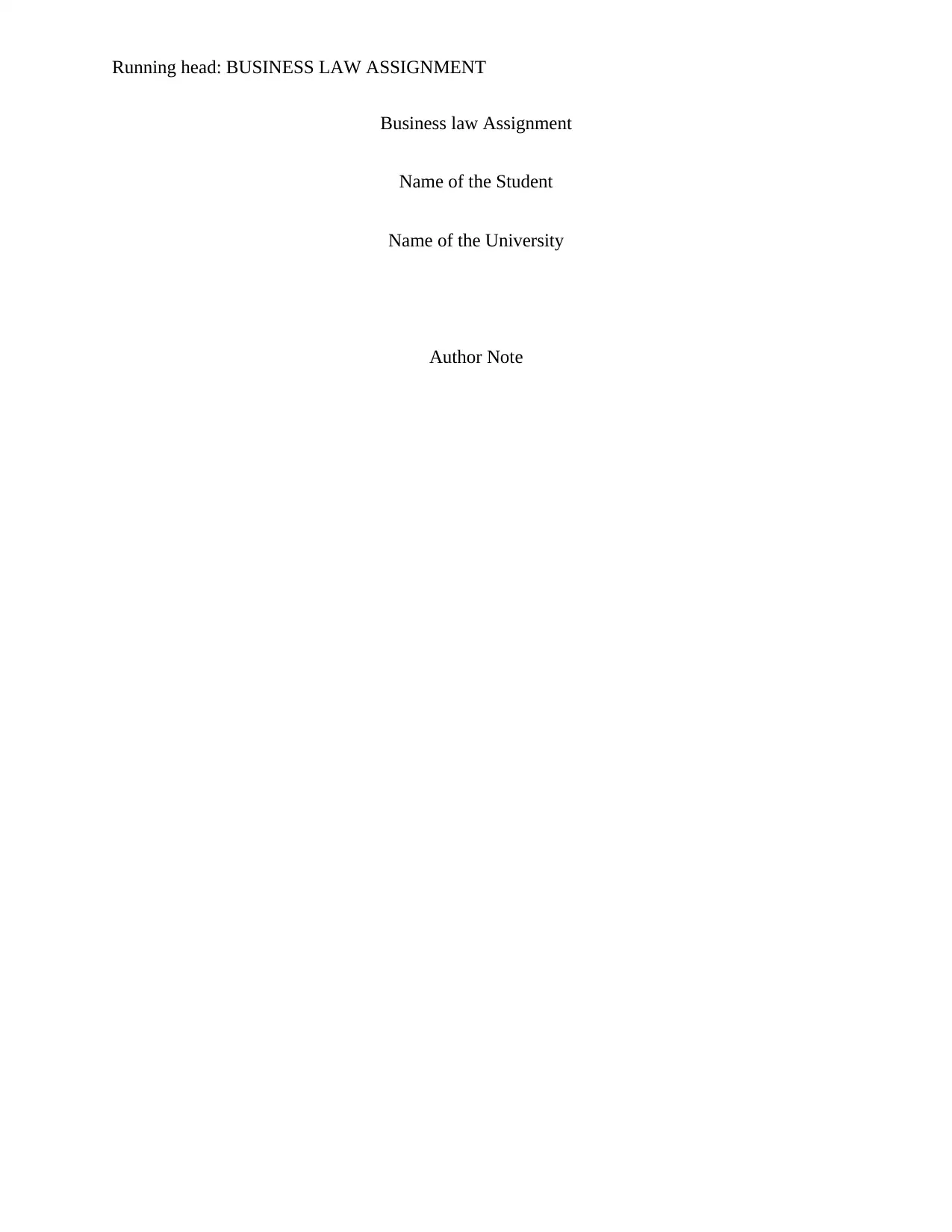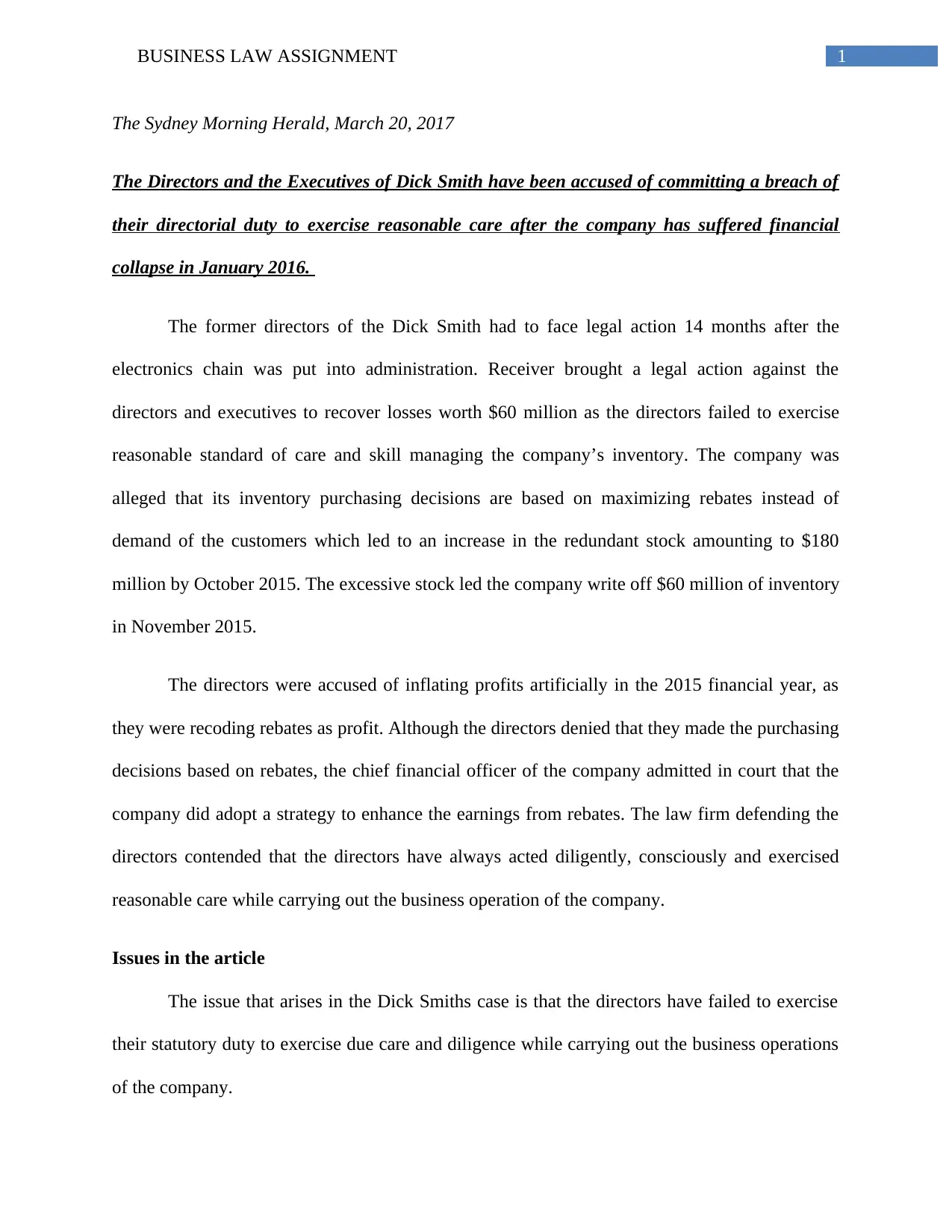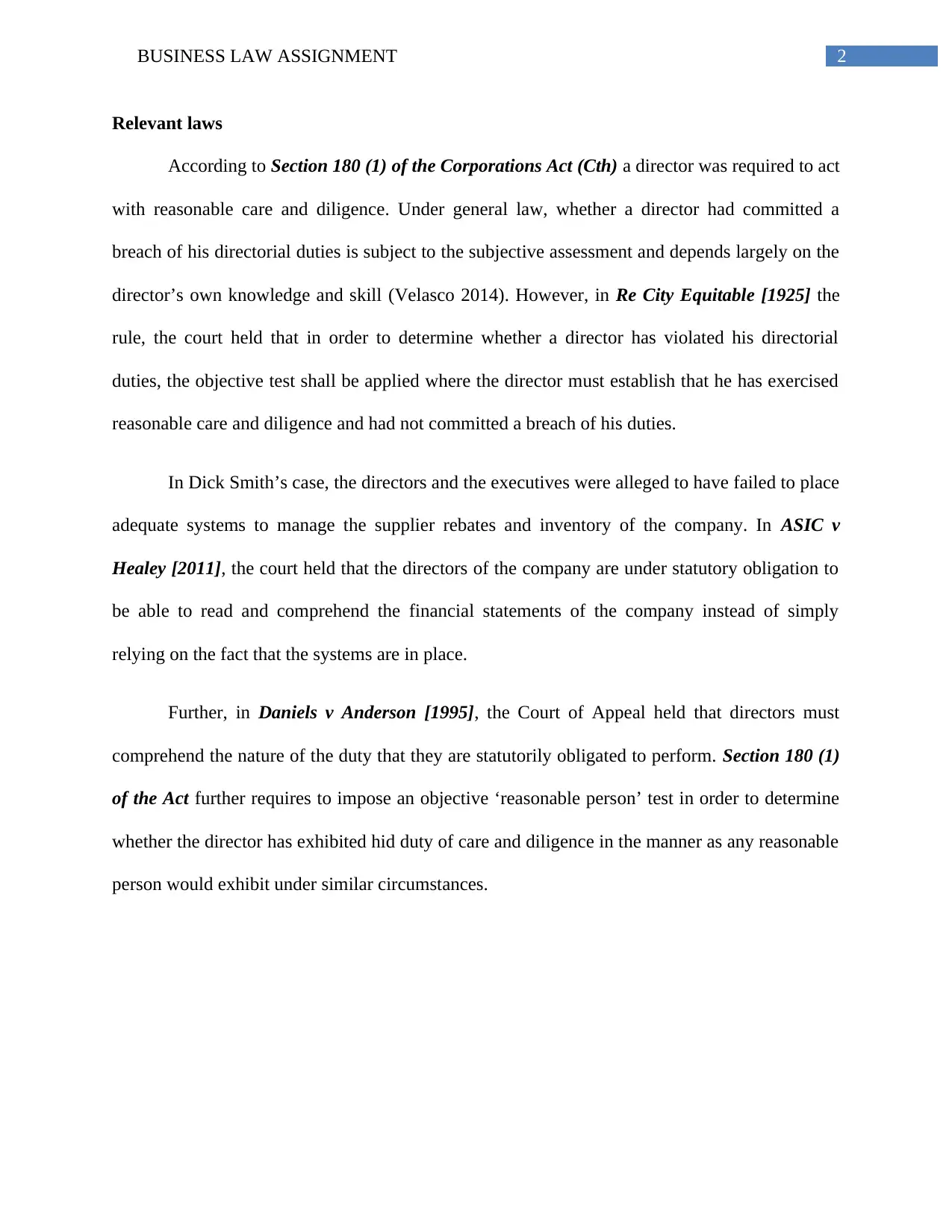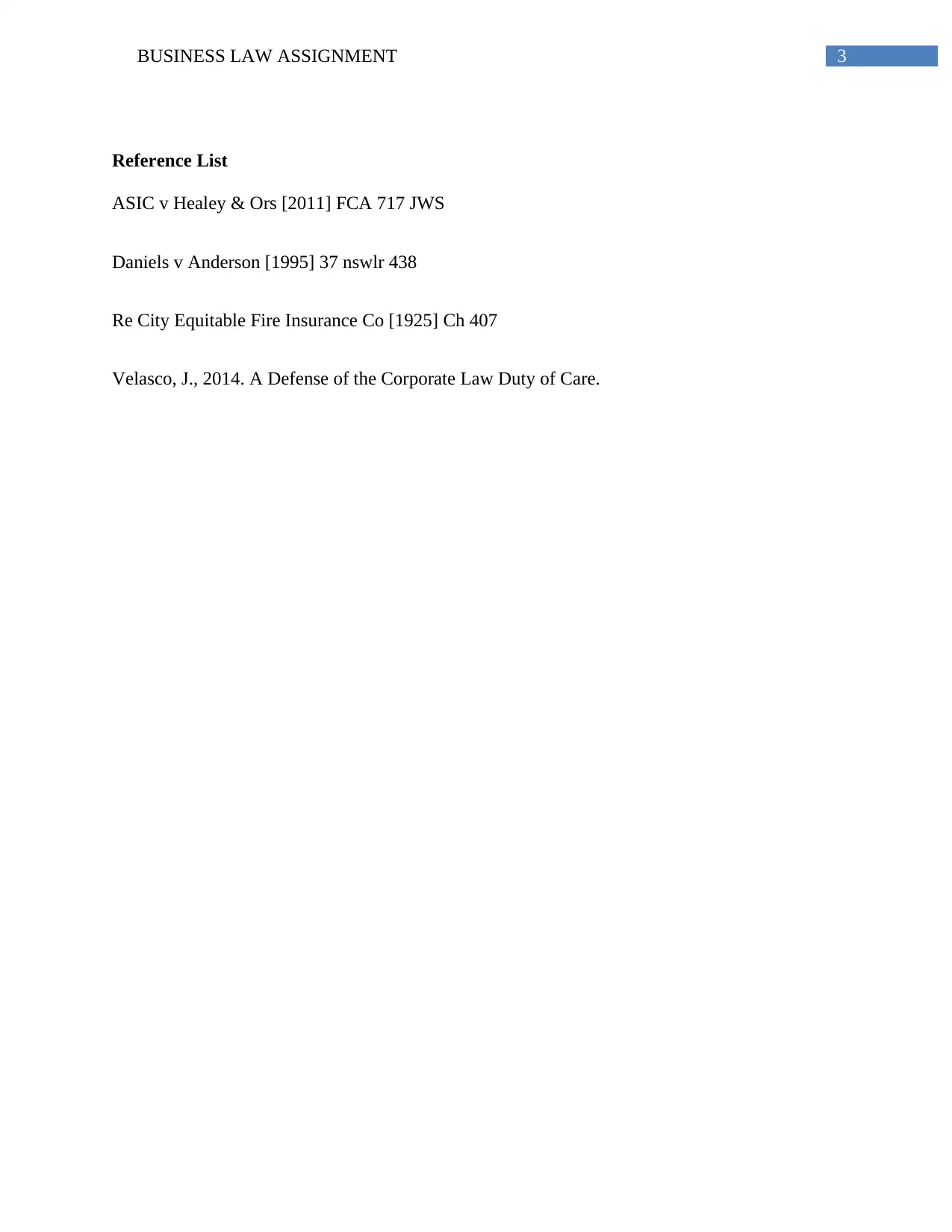Business Law Assignment: Dick Smith Directors' Duty of Care Case
VerifiedAdded on 2020/04/29
|4
|642
|74
Case Study
AI Summary
This case study examines the Dick Smith case, focusing on the alleged breach of directorial duty by the company's directors. The assignment analyzes the failure to exercise reasonable care and diligence, particularly in managing supplier rebates and inventory, which led to significant financial losses. The study references relevant laws, including Section 180(1) of the Corporations Act, and key cases like ASIC v Healey and Daniels v Anderson, to illustrate the legal obligations of directors. The assignment highlights the importance of understanding financial statements and the objective ‘reasonable person’ test in assessing a director's duty of care. The case underscores the legal consequences of inadequate management and the importance of fulfilling statutory obligations in business operations.
1 out of 4











![[object Object]](/_next/static/media/star-bottom.7253800d.svg)